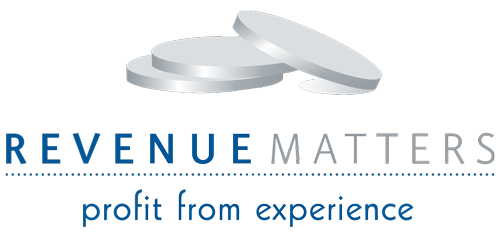
Once a “nice-to-have,” the role of revenue management for any property is now mandatory. It is at the epicenter of hospitality operations: Practitioners directly impact top-line performance – and the great ones strongly influence profit.
Sure, foundational skills related to the profession of revenue management are important – but those skills can be taught. I suppose one could argue that anything can be learned, but it certainly makes life easier for someone considering a revenue management role if they naturally possess certain qualities and personality traits.
If you’re considering a role in revenue management (or hiring for that role), read on!
Here’s what matters
Exactly which traits are more critical that others depends on a number of factors, not the least of which is the environment within which the practitioner will operate. Cultural influences, both at the corporate level and within a given country, shouldn’t be underestimated either. A revenue management practitioner’s voice, leadership and influence needs to come through clearly for an organization to benefit most. Forces that hinder this will dilute the impact that revenue management can have on overall operational performance.
OK, so what personality traits are inherent in great revenue managers? They are – in no particular order:
Curiosity: Demonstrates a clear interest in learning how and why things are the way they are. Why? Because trends and opportunities are sometimes subtle.
Tenacity: Doesn’t give up when faced with obstacles and challenges. Why? The job isn’t easy and you don’t always see immediate results – even when you work really hard.
Assertiveness: Confidently defends a point of view and becomes a driving force for change when needed. Why? With the data that is available to them, revenue managers often see things clearly before others do. Being a proactive change agent in your organization benefits everyone.
Initiative: Identifies opportunities and takes action without being directed to do so and with minimal supervision. Assembles and leverages resources as needed to accomplish goals. Why? Being a pioneer means you’ll sometimes have to get creative in order to get things done.
Leadership: Is viewed and supported by associates (direct reports, peers and senior leadership) as a leader within the organization (even if not placed in a position of direct authority). Why? By definition, the role touches many aspects of the operation and you’ll have to work with and through others in order to be effective.
Communication/Emotional intelligence: Ability to tailor approach to a given audience and effectively advocate for a position on a given issue (verbally and non-verbally). Why? You’ll often need to educate and sell others on your ideas in order to get their support.
Consistency: Adopts an overarching approach to work whereby resources, tools, technology and processes are firmly established and consistently applied. Pays attention to detail while keeping the big picture in mind. Why? Things such as point-in-time data must be captured in regular intervals in order for trends and patterns to be identified. Also, it’s really easy to get distracted or miss something important given the volume of workload you’ll likely be dealing with.
Logical: Uses a rational approach to understand a given issue and provides solutions based on an objective analysis. Why? There is a place for “gut feel,” but that sensation should drive you to investigate what is truly impacting revenue results. This is particularly true if you are getting pressure from above to take things in a certain direction.
Strategic: Thinks several moves ahead and anticipates alternative courses of action where appropriate. Why? The business environment in which you will be operating is highly dynamic. Business mix, seasonality, competitive actions and demand patterns are just some examples you’ll be dealing with.
You may have noticed that the traits require the balanced use of both the left-brain (logical) and the right-brain (creative) sides. This doesn’t mean that if you are stronger in one aspect than another you can’t be great at revenue management. You might just have to work at it a bit harder. In either case, it is a fun, challenging and rewarding pursuit that will have lasting effects in many other aspects of your life, too. Go for it!



